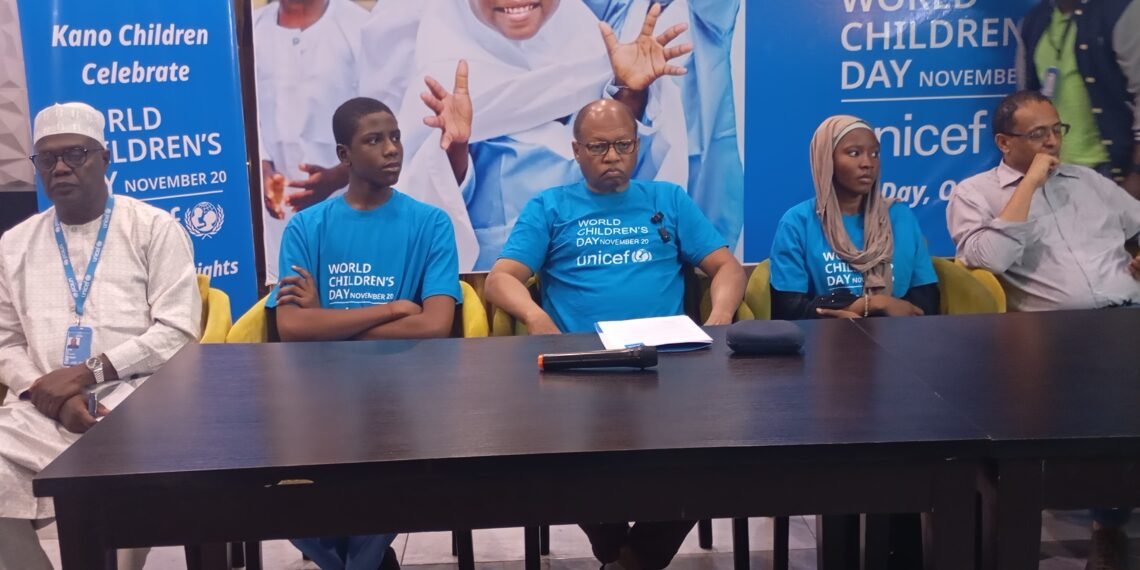The United Nations Children and Education Fund (UNICEF) has called on the Kano State government to sustain and expand investments in child survival, education and protection, as new evidence shows that ongoing interventions in the state and the wider North West are yielding measurable progress for children.
Speaking in Kano on Wednesday at the unveiling of the Nigerian Child 2025 Report to mark the World Children’s Day, the Chief of UNICEF Kano Field Office, Mr. Rahama Farah, said several UNICEF-supported initiatives across Kano, Katsina and Jigawa States have begun reversing years of stagnation in health, nutrition and education outcomes.
“The progress we see today is proof that when government commitment meets strong partnerships, children’s lives change for the better.
“But the job is not done yet—Kano must sustain these gains and scale them to reach every child, especially the most vulnerable,” Farah said.
According to the report, Nigeria’s under-five mortality has dropped by 43 percent since 1990, vaccination coverage has tripled, and more children are being reached with healthcare and birth registration.
In humanitarian-affected areas in the North alone, over 1.3 million people received health services in the first half of 2025, while 340,000 malnourished children were treated.
Farah highlighted Kano-specific progress, including the solarization of primary healthcare facilities to boost immunisation, the renovation of 27 PHCs through the FCDO-funded CRIBS project, improved medical oxygen availability, and the integration of Qur’anic schools into formal education.
“These interventions are already saving lives. They show what is possible when we combine resources, political will and community engagement,” he said.
Read also:
- UNICEF urges Adamawa Government to prioritize education funding, reform
- UNICEF, agency partners media to combat MNT in Taraba
- Good nutrition beneficial, achievable, UNICEF insists
UNICEF also praised Kano’s commitment of N1 billion for Ready-to-Use Therapeutic Food (RUTF) under the Child Nutrition Fund—an investment mirrored by Jigawa and Katsina States.
However, the report warns that challenges remain severe: Kano still has nearly 900,000 out-of-school children, and more than half of children under five in the state (51.9%) are stunted due to chronic malnutrition.
Farah urged state authorities and partners to intensify efforts in vaccination, nutrition, education, child protection and WASH.
“Nigeria has made progress, but urgent, sustained and united action is required. Children in Kano and across the country deserve nothing less than our full commitment to securing their future,” he added.
The UNICEF chief further reaffirmed the UN agency’s readiness to continue supporting governments and communities to ensure every Nigerian child can survive, learn and thrive.






